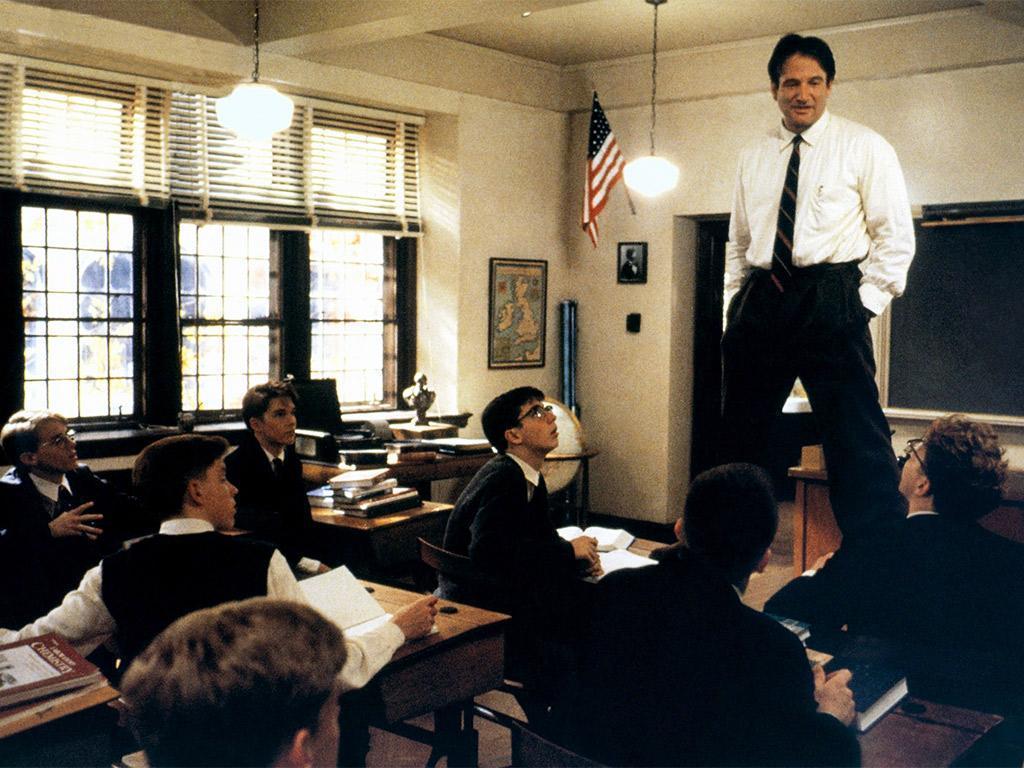A year on from Robin Williams' death, we have learned very little about how to cope with suicide
Society resists understanding suicide. But as we sweep it under the rug, thousands are dying - especially men

Your support helps us to tell the story
From reproductive rights to climate change to Big Tech, The Independent is on the ground when the story is developing. Whether it's investigating the financials of Elon Musk's pro-Trump PAC or producing our latest documentary, 'The A Word', which shines a light on the American women fighting for reproductive rights, we know how important it is to parse out the facts from the messaging.
At such a critical moment in US history, we need reporters on the ground. Your donation allows us to keep sending journalists to speak to both sides of the story.
The Independent is trusted by Americans across the entire political spectrum. And unlike many other quality news outlets, we choose not to lock Americans out of our reporting and analysis with paywalls. We believe quality journalism should be available to everyone, paid for by those who can afford it.
Your support makes all the difference.Today marks the one-year anniversary of actor and comedian Robin Williams’ death by suicide. Suffering from a dementia associated with Parkinson’s disease, he – like 842,000 other people worldwide per year – took his own life, leaving behind a wife and three children.
As survivors of suicide, Williams’ family experience a unique sort of grief, one coated in the surprise that accompanies any unexpected death but also compounded by society’s attitudes towards the act. In our horror at the idea that somebody would kill themselves, we create a culture which defies understanding. If we fully understand, the thinking goes, then we might become in danger of legitimising and encouraging it.
Suicide is so complicated because of the varying emotions not just in the victim but in those left behind. Anger, guilt and sadness are all common, so we alternate between understanding and denial, looking for a logic that doesn’t exist, searching for a reason we can blame on someone, even if that someone is ourselves. Survivors are encouraged to familiarise themselves with what happened to accelerate acceptance – but all around us, society resists that understanding. The pain of a person who kills themselves becomes beyond our comprehension.
When somebody dies this way, we so easily let their deaths become the most important thing about them. What seem to become forgotten, in this mire of pain and sorrow, are the stories of the person who has died living their full, colourful life in times of joy. Before death - before suicide – it’s important to remember there were rich, wonderful experiences. Today then – as well as commemorating Robin Williams’ death – we should not be afraid to celebrate his life: his sweaty, manic stage presence; his quiet intensity in films like Good Will Hunting. A complicated man, he succumbed to a complicated end much too early.
Like Williams, many people kill themselves at home. This means that those who shared that home are sometimes left with post-traumatic stress disorder, surrounded by constant reminders of the act itself. Differences in attitude between family members can also cause tension over how a suicide should be confronted: in the face of widespread stigma, for instance, should knowledge be shared with outsiders and children? Will this negatively impact future generations – or do we have a responsibility to tell and a right to know?
Tragically, high-profile suicides like Williams’ serve a kind of purpose by driving the issue out into the open when so many choose to bury it. They highlight the worrying normality of suicide and subvert the strange cliché that successful people can’t feel desperate or depressed. Mental anguish, lest we forget, does not discriminate.
It may be easily swept under the carpet with talk of “weakness” or “moments of madness”, but we must resist our natural defensiveness when the issue arises. Those who have lost loved ones to suicide need even more support than those who have lost loved ones in other ways, and because of our paradoxical thinking, they are failing to access it. Accordingly, survivors of suicide frequently grieve completely privately, making the already difficult process almost impossible.
Meanwhile, the fact of the matter is that suicide is common, having been the cause of death in 6,708 people in the UK and Ireland last year according to the Samaritans Suicide Report. The male suicide rate, especially, is at its highest rate since 2001, and within that group the suicide rate for men aged 45-59 is at its highest rate since 1981.
If we are to continue working to prevent suicide, then it starts with acknowledgment. These people lived: they experienced good times, loving relationships, and in many instances successful and glittering careers. Their deaths should not overshadow their lives, loves and achievements, but they should raise serious social questions about how we support those suffering from ill mental health. My own suggestion is that we begin reaching out to those who lost their loved ones to suicide, and supporting them in their unique grief. It may seem like a daunting prospect, but the act of reaching out diminishes guilt in a situation that all too often seems sodden with it. Regardless of how little we have to say, awkwardness will always be forgiven in the face of love and understanding.
If you are affected by any of the issues mentioned in this article, contact the Samaritans or Survivors of Bereavement by Suicide
Join our commenting forum
Join thought-provoking conversations, follow other Independent readers and see their replies
Comments